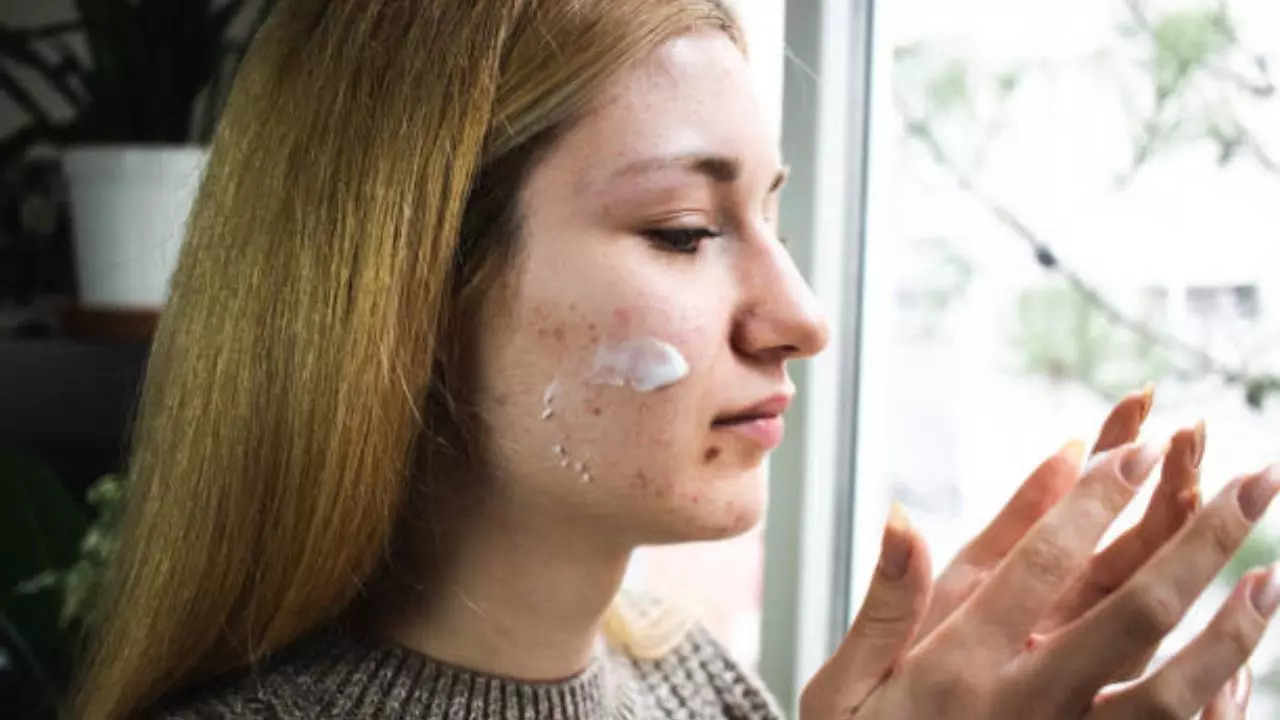Contents
-
news
-
Health
Doctors say common acne medications can become carcinogenic at room temperature; technical information
A study reported that benzoyl peroxide – a common ingredient used in acne creams – turns into the carcinogen benzene over time at room temperature, at elevated temperatures and when exposed to the sun’s ultraviolet rays. Read on to know more.

Common acne creams that contain benzoyl peroxide contain high levels of benzene on store shelves or in the medicine cabinet.
Acne is a common skin problem faced by millions of people around the world today. According to doctors, this happens when the pores under the skin become clogged due to sebum or dirt particles. And many people say that the best way to treat them is with creams that help dry them out. However, a new study warns that these widely used creams become contaminated with a known carcinogen even when kept at room temperature.
According to researchers at Yale University School of Medicine, common acne creams that contain benzoyl peroxide, or BPO, sitting on a store shelf or in a medicine cabinet may contain high levels of benzene—which can cause cancer.
Researchers tested at least 111 known brands that contained benzoyl peroxide — including products from Clearasil, Clean & Clear, Neutrogena, Proactive, Up & Up and store brand equivalents.
How do acne creams become cancerous?,
According to the study published in The Journal of Investigative Dermatology, benzoyl peroxide turns into the carcinogen benzene over time at room temperature, at elevated temperatures and when exposed to ultraviolet rays of sunlight.
This is the first time that benzoyl peroxide products have been observed to decompose into benzene at room temperature. “Our research demonstrates that BPO products can generate benzene at normal room and store shelf temperatures, while cold storage significantly prevents this formation,” said Dr. Christopher Banik, lead researcher and associate professor of dermatology at Yale University School of Medicine in Connecticut. Reduces it.”
According to the Environmental Protection Agency, benzene is classified as a known human carcinogen, because it specifically increases the risk of leukemia – a type of cancer that affects the blood and bone marrow, causing abnormal white blood cells. Cells are produced. Experts say benzoyl peroxide works as an antibacterial agent and is found in over-the-counter treatments and prescription creams for acne and rosacea.
“111 BPO drug products tested from major US retailers appear to be significantly contaminated with benzene when tested soon after receipt from the shelf,” the researchers wrote.
According to the study, about 35 percent of the products tested had benzene concentrations above the U.S. Food and Drug Administration’s limit of two parts per million for drugs. However, researchers said there is no safe level of exposure to benzene. Also in the past, the FDA has recalled some hand sanitizer and aerosol drug products due to benzene contamination. If benzene is found to be above acceptable limits, manufacturers must contact the FDA to discuss a voluntary recall. The researchers’ tests revealed that the concentration of benzene in the products was 35.3 parts per million.
Cold temperatures may slow the degradation of benzoyl peroxide.
According to research, refrigerating creams may slow the degradation of benzoyl peroxide into benzene. “These findings suggest the need to recommend refrigeration of BPO products throughout the supply chain – from manufacturing to patient use – to limit benzene exposure,” Banik said in a journal news release.
“Until formulations are developed to prevent benzene formation, refrigeration can serve as a practical solution to reduce unnecessary exposure,” he said.
Get the latest news live on Times Now with breaking news and top headlines from around the world.


